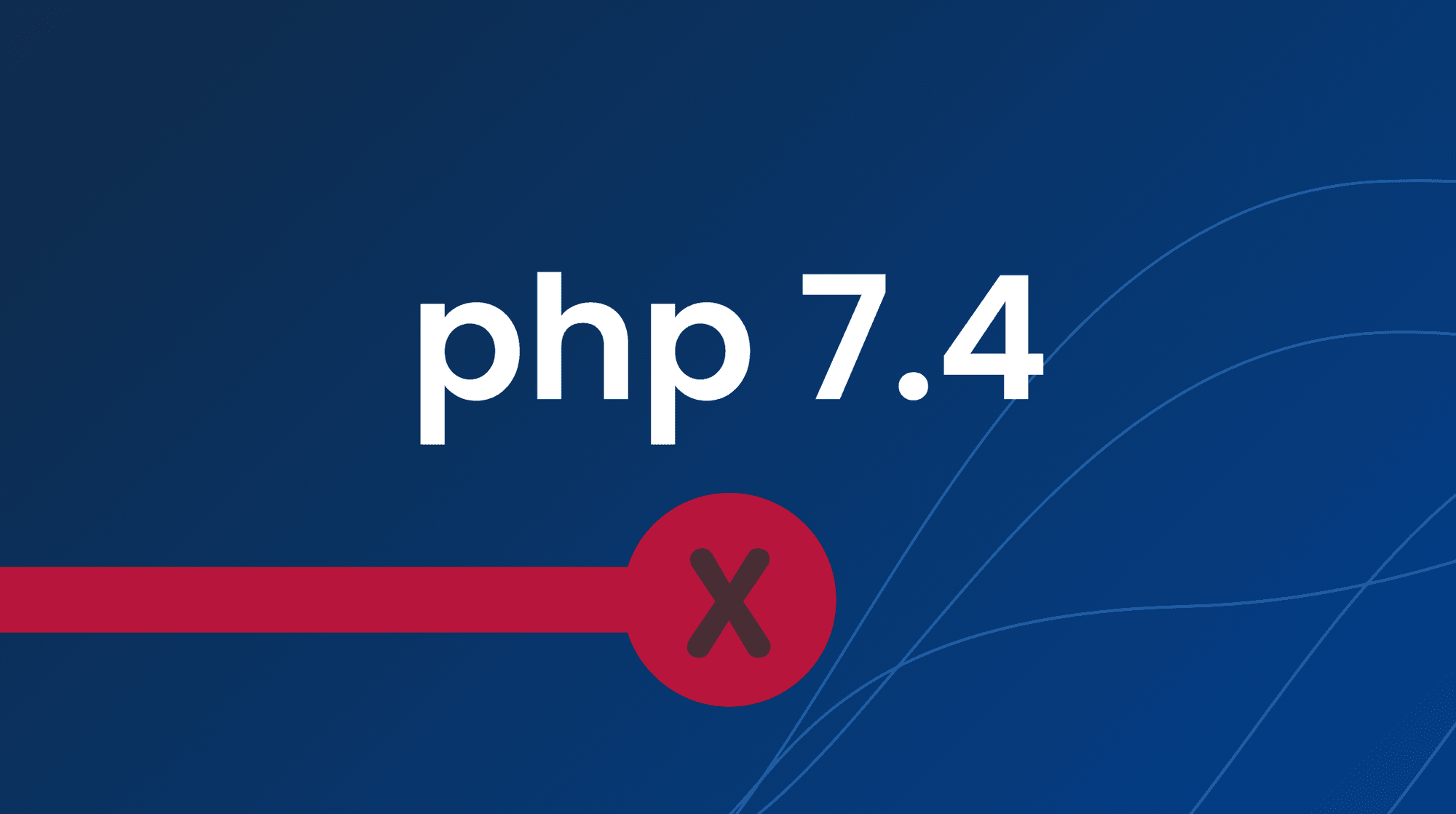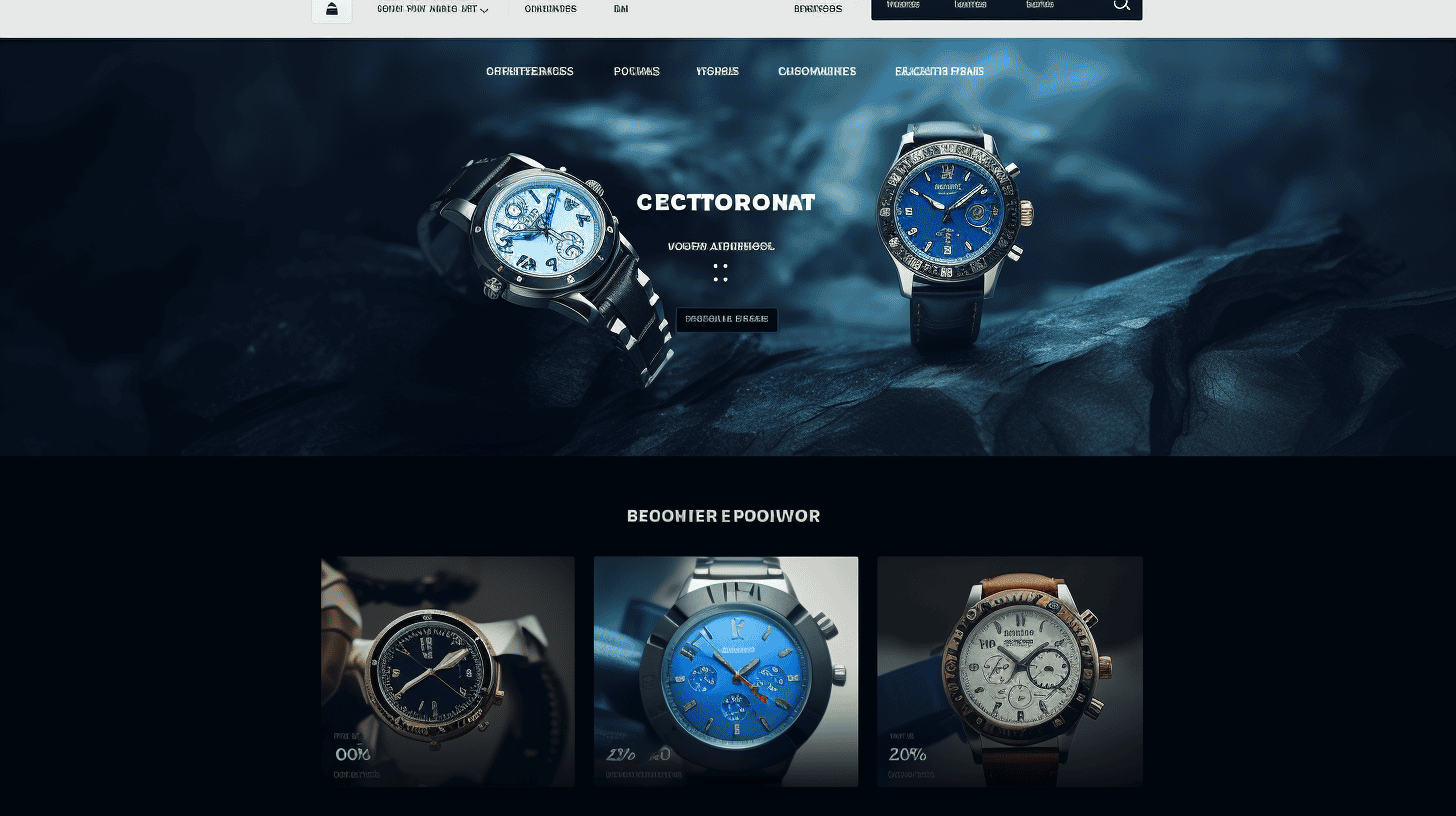In a rapidly evolving digital landscape, having a strong online presence is crucial for small businesses looking to thrive in the competitive market. With technology continually advancing, businesses need a website that not only showcases their products and services but also provides a seamless user experience. This is where WordPress, the leading content management system (CMS), comes into play.
WordPress has become a towering force in website creation, providing businesses with a versatile and user-friendly platform to build and manage their online presence. With its extensive range of themes, plugins, and customization options, WordPress empowers businesses of all sizes to create visually stunning and functional websites without the need for extensive technical expertise.
In this article, we will explore the current state of WordPress in website creation, discuss its popularity, and delve into some insightful statistics. We will also highlight the importance of user-oriented design in small business website ownership and explore the role of WordPress in e-commerce. Lastly, we will touch upon the economic impact of website creation for small businesses.
So, buckle up and join us on this journey to understand how WordPress can shape the future of small business websites, leaving a lasting impact on their online success.
WordPress, A Towering Force in Website Creation: Current Scenario
In the ever-evolving landscape of website creation, one platform stands tall: WordPress. With its user-friendly interface and vast array of customizable themes and plugins, WordPress has become a popular choice for individuals and businesses alike. Let’s explore why WordPress has become a towering force in website creation and its current scenario.
Popularity of WordPress
📈 Statistics on Website Creation
When it comes to the number of websites powered by WordPress, the figures are truly staggering. As of 2024, a whopping 810 million websites are powered by WordPress, equating to 43.2% of all live websites worldwide1. This impressive statistic is a testament to the platform’s widespread adoption and dominance in the website creation arena.
✨ Continuous Growth
WordPress has come a long way since its inception in 2003. From initially holding only 13.1% of the CMS market in 2011, WordPress now powers an astounding 64.3% of all websites that use a content management system1. This remarkable growth can be attributed to several factors, including:
- Open-source nature: WordPress being an open-source platform, developers have the freedom to contribute, customize, and enhance its functionality. This collaborative effort has fueled continuous improvements and innovation.
- Extensive plugin and theme ecosystem: WordPress boasts a vast library of plugins and themes that allow users to extend the core functionality of their websites. From e-commerce solutions to SEO optimization tools, there is a plugin for almost every need.
- User-friendly interface: WordPress prides itself on its intuitive and user-friendly interface, making it accessible even to those without advanced technical skills. With its drag-and-drop editors and visual customization options, building a website becomes a breeze.
Managed WP: The Best Choice for WordPress
With the plethora of hosting providers available, choosing the right one for your WordPress site can be overwhelming. However, one standout option that deserves attention is Managed WP2. Here’s why it’s considered the best choice for WordPress:
🚀 Optimized Performance
Managed WP offers high-performance hosting specifically tailored for WordPress websites. With advanced caching mechanisms, content delivery networks (CDNs), and server optimizations, your website will load faster, ensuring a smooth user experience.
🛡️ Enhanced Security
One of the biggest concerns for website owners is security. Managed WP takes security seriously. They provide robust measures to safeguard your website from cyber threats, such as malware scanning, firewalls, and regular backups, giving you peace of mind.
🎯 Expert WordPress Support
Having access to reliable and knowledgeable support is crucial for any WordPress user. Managed WP offers round-the-clock, expert support to address any issues or concerns you may have. Their team of WordPress experts is ready to assist you every step of the way.
💰 Cost-Effective Solution
Affordability is key when choosing a hosting provider. Managed WP offers competitive pricing plans that cater to different budgets. With their feature-rich offerings, you get excellent value for your money.
With a vast majority of websites powered by WordPress and its continuous growth, it’s clear that this platform is here to stay. Whether you’re a seasoned developer or a beginner, WordPress provides the tools and resources you need to create stunning websites. And when it comes to choosing a hosting provider, Managed WP emerges as the best choice for WordPress users, with its optimized performance, enhanced security, expert support, and cost-effective solutions.
Learn more about why Managed WP is the best choice for your WordPress site.
“WordPress is not just a website creation tool; it’s a community that empowers millions of people to make their mark on the internet.”
Small Business Trends in Website Adoption
📈 Small businesses have increasingly recognized the importance of establishing a strong online presence. With consumers relying heavily on the internet to find products and services, having a well-designed website has become a necessity rather than a luxury. In this section, we will explore two key trends in small business website adoption: small business website ownership and plans, and the vital role of user-oriented design.
Small Business Website Ownership and Plans
👥 According to recent studies, the percentage of small businesses with a website has been steadily increasing. In fact, a survey conducted by The Manifest revealed that 64% of small businesses have a website.
📊 Additionally, the study found that 30% of small businesses without a website plan to establish an online presence within the next year. This highlights the growing recognition among small business owners of the need to adapt to the digital landscape.
👷♂️ When it comes to building and managing websites, small business owners have several options. They can choose to hire a web developer or utilize website builders and Content Management Systems (CMS) such as WordPress, Wix, or Shopify.
🔧 DIY website builders allow small business owners to easily create and update their websites without extensive technical knowledge. They provide customizable templates, drag-and-drop tools, and user-friendly interfaces, making website development accessible to a wider audience.
🌐 On the other hand, hiring a web developer offers the advantage of a custom-built website tailored to the specific needs and branding of the business. While this option may require a higher upfront investment, it allows for a more personalized and professional online presence.
The Vital Role of User-Oriented Design
🎯 In today’s digital landscape, simply having a website is not enough. It is essential for small businesses to prioritize user-oriented design, ensuring that their websites are aesthetically pleasing, easy to navigate, and optimized for a seamless user experience.
🔍 User-oriented design focuses on making websites intuitive and user-friendly. It involves considering factors such as website speed, mobile responsiveness, intuitive navigation, and clear calls to action.
💨 Website speed, in particular, plays a crucial role in user experience. Slow-loading websites can lead to frustration and high bounce rates, negatively impacting conversions and overall customer satisfaction. Studies have shown that 53% of mobile site visitors will leave a page that takes longer than three seconds to load. Therefore, prioritizing site speed improvements is paramount.
🚀 Optimizing website speed can be achieved through various methods, including image compression, minifying code, leveraging caching, and utilizing Content Delivery Networks (CDNs). These techniques can significantly improve website performance and provide a better user experience.
💡 One effective way to improve website speed is by optimizing the backend infrastructure. Managed WordPress hosting services, such as Managed WP, offer site owners the advantage of a hosting environment optimized specifically for WordPress websites. With advanced caching mechanisms, robust server resources, and efficient content delivery, these services help small businesses enhance their site speed and overall performance.
⚡️ Investing in user-oriented design and prioritizing website speed improvements can bring significant benefits to small businesses. Not only does it enhance the user experience, but it also improves search engine visibility, increases conversions, and fosters long-term brand loyalty.
By keeping up with the latest small business website adoption trends and focusing on user-oriented design, small businesses can establish a strong and competitive online presence, enabling them to thrive in the digital era.
WordPress and E-commerce
Introduction
In the ever-evolving world of e-commerce, businesses are constantly seeking user-friendly platforms that provide robust functionality and flexibility. One platform that has emerged as a dominant player in the e-commerce industry is WordPress. With its powerful content management system and extensive plugin ecosystem, WordPress offers a compelling solution for businesses of all sizes.
WordPress Dominance
By 2024, WordPress is expected to lead the e-commerce market, propelled by WooCommerce’s popularity among small businesses[1]. With its user-friendly interface and seamless integration with WordPress, WooCommerce has gained significant market share, surpassing its competitors. Let’s take a look at the numbers:
- WordPress holds an impressive 37.4% of the market share, making it the most widely used content management system worldwide [1].
- WooCommerce, the leading e-commerce plugin for WordPress, powers 28.6% of all online stores [1].
- In comparison, competitors like Shopify, Wix, and Squarespace hold market shares of 5.6%, 3.7%, and 3.1% respectively [1].
These statistics highlight WordPress’s dominance in the e-commerce space and its ability to cater to the diverse needs of businesses across various industries.
WordPress and WooCommerce
One of the key factors behind WordPress’s success in e-commerce is the powerful integration of WooCommerce. Here’s what sets it apart:
- Easy Setup and Management: Setting up an online store with WooCommerce is a breeze. With its intuitive setup wizard and user-friendly interface, even non-technical users can quickly get their store up and running.
- Flexibility and Customization: With thousands of plugins and themes available, WooCommerce allows businesses to tailor their online stores to their specific needs. From adding advanced product variations to integrating payment gateways, the possibilities are endless.
- Scalability: Whether you’re a small business just starting or an enterprise-level e-commerce store, WooCommerce can scale with your business. With its robust infrastructure and seamless integration with WordPress, WooCommerce can handle thousands of products and high traffic volumes without compromising performance.
- SEO-Friendly: WordPress is known for its search engine optimization (SEO) capabilities, and WooCommerce inherits those benefits. With built-in SEO features, customizable URLs, and integration with popular plugins like Yoast SEO, WooCommerce provides the tools necessary to improve search rankings and drive organic traffic.
In Conclusion
WordPress’s dominance in the e-commerce market, coupled with the power of WooCommerce, solidifies its position as a go-to solution for businesses looking to establish and grow their online presence. With its user-friendly interface, extensive customization options, and scalability, WordPress and WooCommerce provide a winning combination for e-commerce success.
So, if you’re considering launching an online store or looking to enhance your existing e-commerce presence, WordPress and WooCommerce should be at the top of your list.
Find out more about WordPress Management here.
🔔 Remember, with WordPress and WooCommerce, you have all the tools you need to create a robust, user-friendly, and successful e-commerce store. Happy selling! 🔔
[1] By 2024, WordPress is expected to lead the e-commerce market, propelled by WooCommerce’s popularity among small businesses. Significantly more market share compared to competitors like Shopify (5.6%), Wix (3.7%), and Squarespace (3.1%).
The Economic Impact of Website Creation
🌐💼💰
Introduction:
In today’s digital age, having a strong online presence is crucial for businesses of all sizes. Websites serve as virtual storefronts and marketing tools that can attract customers and boost sales. But the impact of website creation goes beyond just aesthetics and functionality. The economic implications of having a well-designed and optimized website are significant. Let’s explore how website creation contributes to the economy and why it is a vital investment for businesses.
The Market Size:
The Web Design Services industry has experienced significant growth in recent years, reflecting the increasing importance of websites for businesses. In 2023, the market size of the industry was estimated to be around $11.0 billion[1]. This staggering figure speaks to the high demand for web design services and the economic impact of this sector.
Creating Employment Opportunities:
Website creation has also created a multitude of job opportunities, ranging from web designers and developers to content creators and digital marketers. As businesses recognize the importance of having an online presence, they seek professionals to help them build and maintain their websites. This leads to job growth and economic stability. Additionally, businesses often outsource website design and development to specialized agencies, further generating employment opportunities and fueling the economy.
Stimulating Local and Global Marketplaces:
Websites not only enable businesses to reach and engage with local customers, but they also provide a gateway to a global marketplace. With a well-designed website, businesses can expand their customer base beyond geographical boundaries and tap into new markets. This expansion translates into increased revenue, trade, and economic growth. Websites also promote entrepreneurial opportunities for individuals to start their own digital businesses, further contributing to economic development.
Boosting Sales and Revenue:
One of the most significant economic impacts of website creation is its ability to drive sales and revenue growth for businesses. A well-optimized website acts as a 24/7 sales representative, allowing customers to browse products or services, make purchases, and interact with the brand at their convenience. The accessibility and convenience of online shopping have revolutionized consumer behavior, leading to increased sales and revenue for businesses. This growth translates into higher profits, tax revenue, and economic prosperity for communities.
Conclusion:
Website creation has become an integral part of business strategy, contributing to economic growth, job creation, and increased revenue. As consumers increasingly rely on the internet for purchasing decisions, businesses must invest in well-designed websites to stay competitive. The economic impact of website creation reverberates through various sectors, stimulating local and global marketplaces and creating opportunities for businesses and individuals alike. So, if you’re a business owner looking to boost your bottom line, consider the economic benefits of investing in a professionally designed website.
[1]: Source
Conclusion
In conclusion, WordPress has solidified its position as the leading platform for small business websites. Its ease of use, extensive plugin options, and robust community support have contributed to its widespread popularity. With an estimated 35% market share, WordPress continues to dominate the website creation landscape.
Small businesses are increasingly recognizing the importance of establishing an online presence. The statistics on website creation clearly indicate that WordPress is the go-to choice for businesses of all sizes. Its versatility and scalability make it suitable for a wide range of industries and purposes.
Furthermore, the integration of WordPress with e-commerce solutions such as WooCommerce has further solidified its position in the market. With WordPress, small businesses can easily set up and manage their online stores, offering their products and services to a global audience.
Website creation plays a crucial role in boosting the economy by creating new job opportunities and driving business growth. As more small businesses invest in their online presence, they contribute to the overall economic impact. WordPress empowers businesses with the tools they need to succeed in the digital realm.
In conclusion, WordPress remains the future of small business websites, offering unparalleled flexibility, functionality, and ease of use. Whether it’s a simple informational website or a full-fledged e-commerce store, WordPress provides the necessary tools and support to create a powerful and engaging online presence.
Consider leveraging the power of Managed-WP, a premium managed WordPress cloud hosting platform, to streamline your website creation process. With Managed-WP, you’ll benefit from simplified infrastructure, expert 24/7/365 WordPress support, and proactive monitoring. Experience the freedom to focus on what matters most – your business – while leaving the technical aspects to the experts. Check out Managed-WP to unlock the full potential of your WordPress website.
Frequently Asked Questions
- Why is WordPress considered the future of small business websites?
WordPress is considered the future of small business websites due to its user-friendly interface, extensive customization options, vast selection of themes and plugins, search engine friendliness, scalability, and cost-effectiveness.
- Is WordPress suitable for all types of small businesses?
Yes, WordPress is suitable for all types of small businesses. Whether you’re running an e-commerce store, a blog, a service-based business, or a portfolio website, WordPress can cater to your needs with its flexibility and adaptability.
- Do I need coding skills to build a WordPress website for my small business?
No, you don’t need coding skills to build a WordPress website for your small business. WordPress offers a user-friendly visual editor, drag-and-drop page builders, and customizable themes that allow you to create a professional website without any coding knowledge.
- Are there any costs involved in using WordPress for small business websites?
WordPress itself is a free and open-source platform, but there are costs associated with running a website. These may include hosting fees, domain registration, premium themes or plugins (if desired), and maintenance costs. However, compared to other CMS options or custom-built websites, WordPress is relatively cost-effective.
- Can I optimize my WordPress small business website for search engines?
Yes, WordPress provides numerous SEO plugins such as Yoast SEO and All in One SEO Pack, which make it easy to optimize your website for search engines. Additionally, WordPress’s clean code, responsive design, and content management capabilities contribute to better search engine rankings.



















